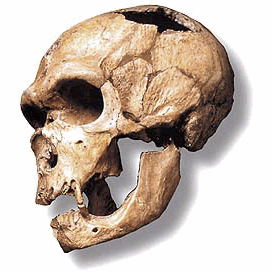What is a Theory?
- Laurie L.

- Sep 17, 2019
- 3 min read
Updated: Jun 24, 2022

You may be familiar with a hypothesis being an "educated guess" or a law meaning that something's a "fact." Sometimes we're taught that a theory is sandwiched between a hypothesis and a law in some sort of fact scale. Unfortunately, it's not a scale of truth and theories don't work like that either.
Different fields of science define these three terms differently. Methods of testing depends on your field. An ecologist isn't going to do an experiment the same way a physicist will. So these terms are just the beginning of the in-depth world of science.
Hypothesis

A hypothesis is a research question that needs to be answered through experimentation. It's based on all the available research on the topic and ensures that you are educated before you even write out your plan. The whole point of having a hypothesis is to find out a way to disprove it. You always want to make sure your experiment is as unbiased as possible or else your results (no matter what they are) aren't reliable.
Law

Now let's talk about laws. A law is something that produces the exact same results under the exact same conditions every time, no matter what part of the universe you live in.
A great example of a law is the discovery made by Galileo Galilei nearly 400 years ago. Later, Newton created the Law of Motion that says that all objects no matter how much they weigh or how big they are, fall at the same speed. The reason that "doesn't work" on earth is because of air resistance. To demonstrate the law, NASA dropped a hammer and feather in on the moon in zero gravity where there's no air resistance over 238,900 miles away...

and they landed at the exact same time. The law shows us what will happen, not why or how.
Theory
Let's talk about the theory. A theory shows us an explanation for a topic. You take all the research and knowledge from as many fields of sciences as possible to create an explanation for why/how something happens in all those fields. When we talk about gravity as a theory, it's an explanation based on countless research and evidence scientists explored through the observation that every time something drops, it goes to the ground and not up towards space.

Evolution is a theory because we can observe it in the same way we observe gravity and in multiple fields of science (Anthropology, Biology, Ecology, Geology, etc.). A theory isn't something that can be "disproven" like a hypothesis can because it's an explanation, not a question. For more information about evolution, check out this LINK.
Theories are crucial for combining fields of science and creating an explanation using all of the factors you're given. Why are our rocks older the deeper we dig? Why are human fossils not found with dinosaur fossils? How did dogs come from wolves? Evolution is a theory that answers all those questions.
Occam's Razor

The concept that's most important when thinking about hypotheses, theories, and laws is Occam's razor. If you have two explanations for how something works, you want to choose the one with the least assumptions involved because it's more likely to be correct. The more assumptions you have to make on your idea, the more unlikely it is to be true. This concept is applied to the fullest with this topic and helps scientists save themselves trouble from pursuing ideas that won't lead anywhere.
Always remember that a hypothesis requires as much knowledge as possible and must be testable. A theory is an explanation with Occam's razor taken into account, and a law tells us what happens and is applicable everywhere, even the moon!
Sources:
Biology: Concepts & Connections 9th Edition by Campbell 2017
Lecture Notes: Dr. Kurtis Dean and Dr. James Loch, Evolution, Fall 2018
Lecture Notes: Dr. Kurtis Dean and Dr. James Loch, Evolution, Fall 2018
(Lectures Notes: Dr. Hannah Marsh, Human Prehistory, Fall 2014; Human Variation, Spring 2016; Human Evolution, Fall 2016)
Lecture Notes: Dr. Stephen Wilson, General Ecology, Spring 2015
Lecture Notes: Dr. Daryl Goad, Principles of Biology, Fall 2014
Lecture Notes: Mr. Michael Sholar, Life Science, Spring 2013
Dr. Jeff Yelton, Professor of Archaeology, UCM
Dr. Sally Zellers, Professor of Geological Sciences, UCM
"The Role of Theory in Advancing 21st Century Biology: Catalyzing Transformative Research." The National Academy of Sciences, Engineering, and Medicine , The National Academy of Sciences, dels.nas.edu/resources/static-assets/materials-based-on-reports/reports-in-brief/role_of_theory_final.pdf.
Schaffer, Jonathan. "What Not to Multiply Without Necessity." Australasian Journal of Philosophy, vol. 93, no. 4, 2015, pp. 644-64, doi:http://www.jonathanschaffer.org/laser.pdf.








Comments